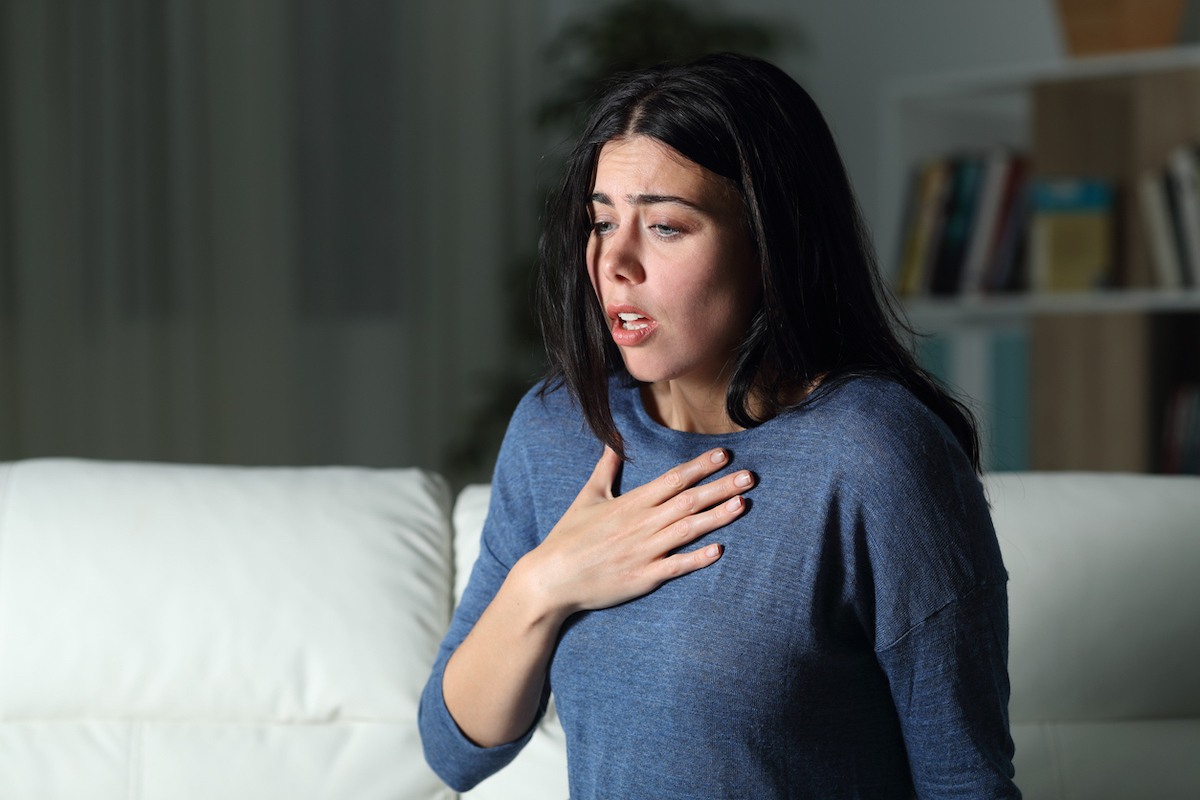A new report from Sky News reveals that some COVID long-haulers who lost their sense of smell during a bout with the virus find that their olfactory organs begin working overtime later on. Specifically, some individuals find themselves smelling strong odors of fish, burning, and “sickly sweet” odors where no such aromas exist. According to Nirmal Kumar, MD, an ear, nose and throat surgeon who serves as president of ENT UK, COVID long-haulers’ olfactory distortion, also known as parosmia, is both “very strange and very unique,” even to medical experts. While it may seem relatively minor compared to some of the other complications associated with COVID, Kumar told Sky News that the effects of parosmia are “really disturbing patients and their quality of life is hugely impacted.” Though Kumar admits that the exact means by which the sense of smell is affected in long-haulers hasn’t been definitively established, he says it’s likely due to the fact that the virus frequently affects nerves in the brain associated with a person’s sense of smell, both in the early stages of the virus, and, in the case of long-haulers, weeks or months later. In terms of regaining normal olfactory function, while there’s no surefire cure for this unpleasant phenomenon, Kumar says that “smell training”—in which you sniff essential oils with strong scents, like lemon and eucalyptus oils, for 20-second intervals—can potentially help patients’ sense of smell return to normal. While a distorted sense of smell may be among the more perplexing symptoms in COVID long-haulers, it’s far from the only one. Read on to discover which COVID symptoms long-haulers say they’re most frequently afflicted with. And if you’re concerned you may have been exposed to coronavirus, check out The Earliest Signs You Have COVID, According to Johns Hopkins. Read the original article on Best Life. According to Survivor Corps, a Facebook group for COVID long-haulers, among a group of 1,567 individuals with long-term COVID symptoms surveyed by Natalie Lambert, MD, 56.56 percent said they had difficulty returning to their pre-COVID activity levels post-diagnosis. And if you’re eager to protect your health, The Most Popular Mask May Also Be the Least Effective, Study Finds. Trouble concentrating or focusing is a major source of distress for many COVID long-haulers, with 58.97 percent of Survivor Corps respondents saying they’d experienced this effect. And for more surprising indications you have the virus, This Strange Symptom Could Be the Only Sign You Have COVID, Study Says. While shortness of breath is one of the most well-known symptoms of an active COVID infection, it’s one of the most common ailments in long-haulers, too. Among the Survivor Corps members surveyed, 65.10 percent said they still struggled with shortness of breath or difficulty breathing. And for the latest COVID news delivered to your inbox, sign up for our daily newsletter. Among the Survivor Corps members surveyed, a whopping 65.75 percent said they were still experiencing muscle or body aches weeks or months after their COVID diagnosis. And for more on this long-term effect, check out Ellen DeGeneres Reveals the “One Thing They Don’t Tell You” About COVID.ae0fcc31ae342fd3a1346ebb1f342fcb By far the most common side effect in COVID long-haulers is fatigue. In the Survivor Corps group, 100 percent of those polled said they were still experiencing fatigue for a significant period of time post-infection. And if you want to be vigilant about your health, This Is One of the Most “Easily Overlooked” COVID Symptoms, Experts Warn.




